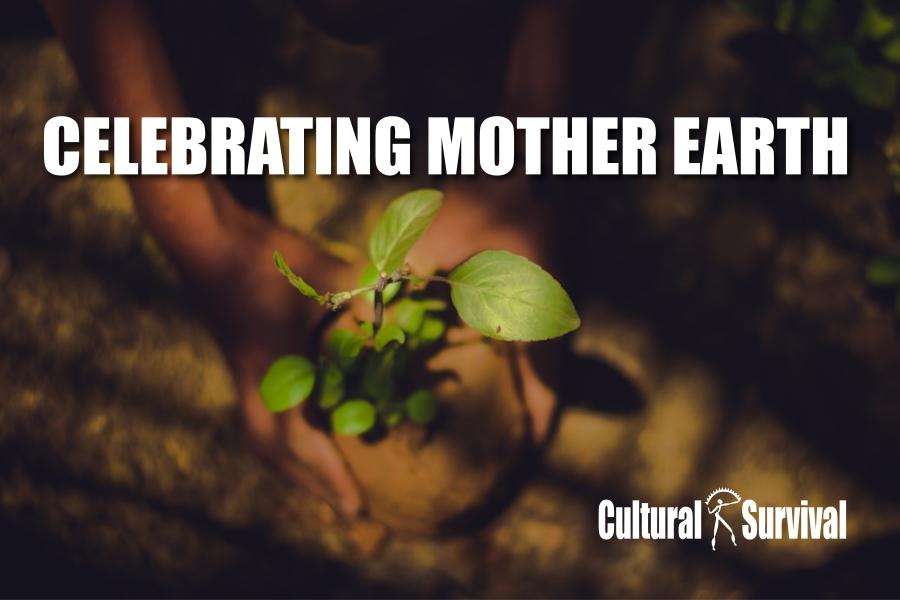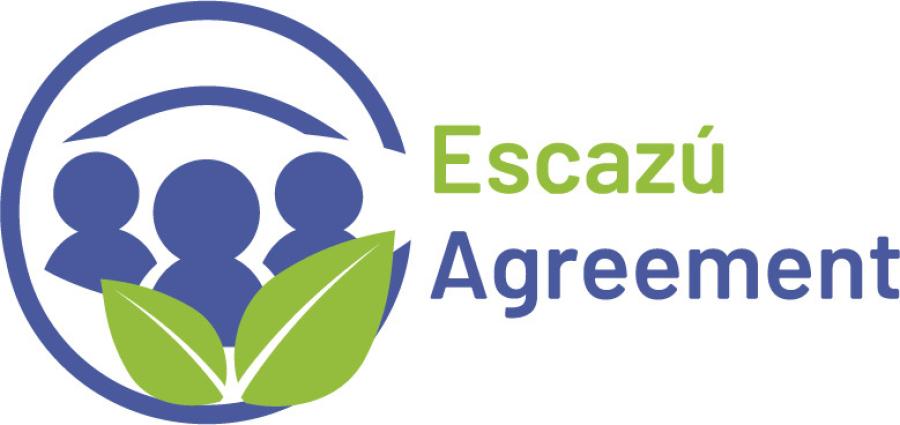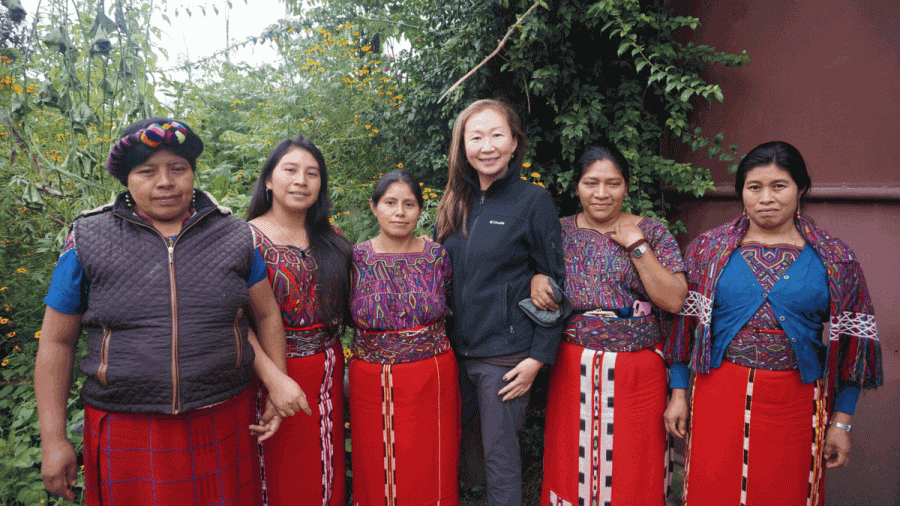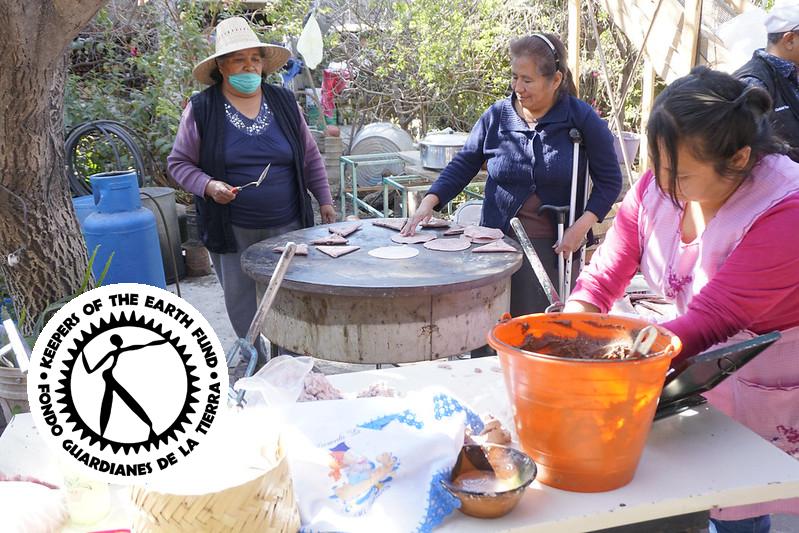
Cultural Survival’s Keepers of the Earth Fund provides small grants designed to support Indigenous Peoples’ community advocacy and development projects. Since 2007, the Fund has provided nearly $3 million in grants and technical assistance to over 450 Indigenous-led projects in 65 countries around the world.
The Fund provides grants up to $10,000 that go directly to grassroots Indigenous organizations and groups to support their self-designed projects based on local, traditional values. Projects address a vast array of economic and cultural development strategies including cultural retention, language revitalization, food sovereignty, climate change, gender equality, battling extractive industries, Free, Prior and Informed Consent, leadership and governance.
Cultural Survival is proud to announce the following 30 grant partners in 13 countries, totaling $136,549.
Hogares Caldono CEFIC - Nasa (Colombia)
Teaching about Places of Cultural and Spiritual Importance on Nasa Lands
Hogares Caldono CEFIC is an educational center in the Lorenzo de Caldono Indigenous Reserve which is accessed by young people from the neighboring six Indigenous reservations. With more than 180 mostly bilingual Castilian and Nasa Yuwe students, CEFIC will strengthen education through community engagement about cultural principles rooted in balance and harmony with nature. The KOEF grant will enable CEFIC to engage with youth from the Nasa community, teaching them about their traditional knowledge which is connected to their lands, local environments, and sacred sites.
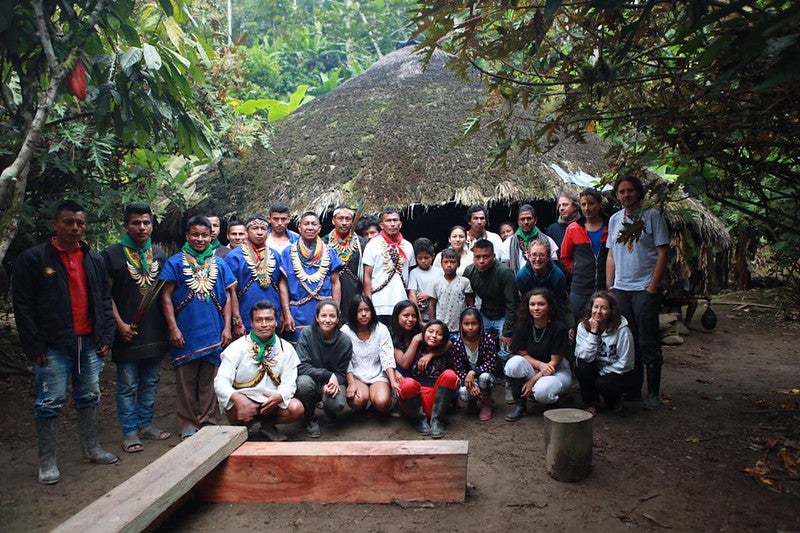
Unión de Médicos Yageceros de la Amazonía Colombiana (UMIYAC) - Siona, Coreguaje, Inga, Kamentsá, Cofán (Colombia)
Revitalizing of Ancestral Knowledge and Promoting Community, Women’s and Environmental Health
An organization serving five Indigenous Peoples, UMIYAC works to protect the Amazon rainforest and revitalise their cultures and ancestral medicinal practices. Women’s participation in ancestral medicine is fundamental for the strengthening and transmission of the spiritual knowledge and resilience of the Amazonian Peoples. UMIYAC will organize the first gathering of women healers and Indigenous rights defenders from the Siona, Coreguaje, Inga, Kamentsá, and Cofán Peoples.
Asentamiento Ancestral Cofani Sinangoe - Al'Cofan (Ecuador)
Protecting Traditional Lands through the Sinangoe Community Guard Project
Asentamiento Ancestral Cofani Sinangoe aims to keep their ancestral lands and territories intact for future generations. Their lands are threatened by illegal hunting, large-scale mining, and fishing, which contaminates the water sources and their sacred lands. The KOEF grant will enable the community to monitor and protect their lands through organizing a community guard. Protection of the Aguarico River will benefit around 90,000 people from the Kichua, Shuar, Siona, Sequoia and other Cofan communities.
La Nacion Sapara de Ecuador (NASE) - Sapara (Ecuador)
Protecting the Lands and Cultures of Sapara Communities
The Sapara Nation of Ecuador (NASE) develops and implements projects that strengthen rights, land, and the Sapara culture. The Sapara are an Amazonian Peoples historically living between the Pastaza and Napo Rivers in southeastern Ecuador and northwestern Peru. NASE will train young people on human rights, community leadership, and environmental issues. Sapara youth will have an opportunity to take on leadership roles and share knowledge through facilitated workshops in schools and communities.
Asociación de Mujeres Yamaram Nua - Shuar (Ecuador)
Building a Ceremonial Center for Shuar Women to Share Knowledge and Gain Spiritual, Cultural and Economic Empowerment
The Asociación de Mujeres Yamaram Nua is a women-led community organization aiming for economic, political, socio-cultural and environmental empowerment of Indigenous women of the Ecuadorian Amazon. The organization will run training workshops for women in traditional crafts, pottery, and painting, and an elder Shuar woman will teach young women about Shuar spirituality and their relationship with the earth.
Confederación de Nacionalidades Indígenas del Ecuador (CONAIE) - Tsáchila, Chachi, Epera, Awa, Quichua, Shuar, Achuar, Shiwiar, Cofán, Siona, Secoya, Zápara, Andoa y Waorani, Afro-Ecuadorians - (Ecuador)
Mobilizing Our Leaders
CONAIE is Ecuador’s largest Indigenous organization which represents the country’s 14 Indigenous Peoples. Recent protests and social movements in Ecuador have led to the detention of several Indigenous leaders. The KOEF grant will enable CONAIE to organize a series of meetings between Indigenous leaders across Ecuador on strategizing for Indigenous rights and will help mobilize legal support for the release of Indigenous leaders arrested during the recent protests.
Fundacion Indigena Comunitaria - Lenca (Honduras)
Training Indigenous Attorneys in Indigenous Law at the Indigenous and Peoples’ University
Fundacion Indigena Comunitaria is comprised of 25 Lenca community leaders from four municipalities. Its main objective is to operate the Indigenous and Peoples’ University (La Universidad Indígena y de los Pueblos). The Fundacion will train 25 Indigenous leaders on issues related to Indigenous wellbeing, including Indigenous identity and rights; land rights; Free, Prior and Informed Consent; traditional health systems; education; the Nagoya Protocol; state governance structures; and Indigenous law.
ARHI’s Folk Culture Research Centre of North East India - Karbi (India)
Revitalization of Natural Dyeing Tradition of the Karbi Tribe
ARHI is an Indigenous-led organization focused on the development of Indigenous Peoples in India, particularly around issues of cultural identity and Indigenous languages. The Folk Culture Research Centre conducts research in to promote the cultural traditions of Indigenous Peoples in north-east India. The KOEF grant will allow the promotion of Indigenous knowledge of natural dyeing textile traditions of the Karbi Peoples in Assam through the production of videos and facilitation of workshops.
Área de Mujeres y Parteras de la Organización de Médicos Indígenas del Estado de Chiapas (OMIECH) - Tsotsil, Tseltal (Mexico)
Strengthening Traditional Indigenous Midwifery
OMIECH works with women and midwives in the Mexican state of Chiapas to promote the knowledge and practice of traditional Mayan medicine, particularly of the Tsotsil and Tseltal Peoples. OMIECH will use the funds to run a series of community workshops as well as hold a regional meeting of midwives and apprentices. The workshops and meeting will focus on the causes and consequences of losing traditional Indigenous midwifery practice, and on concrete ideas and actions to promote and preserve this knowledge.
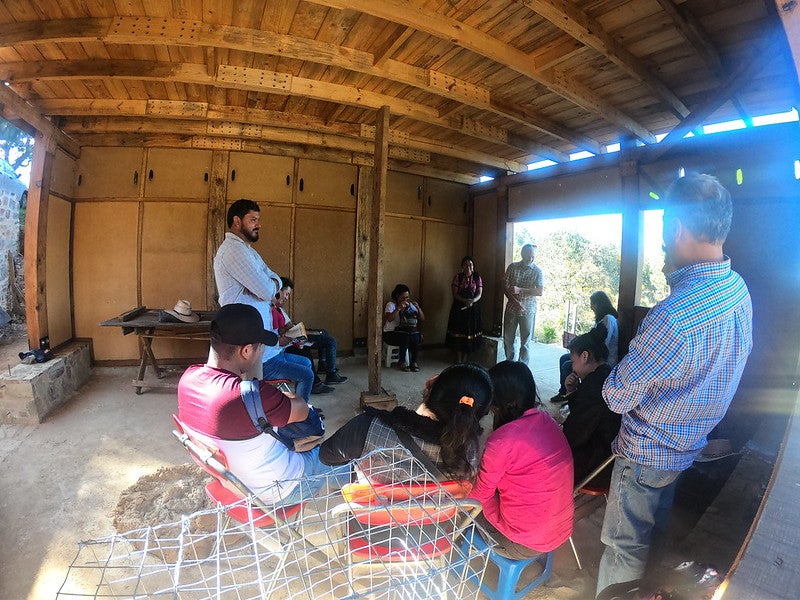
Makxtum Kgalhaw Chuchutsipi - Tutunakú (Mexico)
Defending the Ajajalpan River
The Makxtum Kgalhaw Chuchutsipi organization is made up of ten communities that lie along the Ajajalpan River in the north of the state of Puebla. The local environment is threatened by large-scale development, including hydroelectric dams.The KOEF grant will be used to strengthen the voices and leadership of Tutunakú youth to defend the area from development projects and be trained on alternative energy production such as solar panels, as part of their strategy to reach energy sovereignty.
Comité Ixtepecano en Defensa de la Vida y el Territorio - Binizá/Zapotec (Mexico)
Implementation of the Guidxi Layú Agroecological Campesino School
Comité Ixtepecano en Defensa de la Vida y el Territorio is a network of neighbors, farmers, community members, cultural and environmental organizations promoting sustainable programs and defending their land against mining and other destructive projects. The funds will be used for the building of the Guidxi Layú Agroecological Campesino School, particularly the installation of a biofactory, a chicken coop, and the development of an agriculture training module.
Consejo Regional Wixárika por la Defensa de Wirikuta (CRW) - Wirárika (Mexico)
Defending Wirikuta
CRW aims to strengthen the defense of the territories and sacred places of the Wirárika Peoples in Wirikuta to secure the continuation of traditional practices. The KOEF grant will be used to further build social networks between community leaders to promote peacebuilding between Indigenous and non-Indigenous residents of the Wirikuta region.
Center for Indigenist Development in the Philippines (CIDev-Phil) - Teduray, Lambangian (Philippines)
Documenting Teduray Indigenous Knowledge Systems and Practices on Birthing in Relation to the Environment
CIDev-Phil is an Indigenous grassroots organization which aims to strengthen the relationship between Indigenous Peoples and promote self-determination. CIDev-Phil will use the funding to document the birthing practices of the Teduray Peoples, how these practices are shifting to accomodation current policy requirements, and to develop workshops and learning materials.
The Mulokot Foundation - Wayana (Suriname)
Developing an Engagement Strategy with Wayana Peoples
The Mulokot Foundation aims to bring sustainable development to Wayana communities through capacity building, developing management skills, protecting land and biodiversity, and developing sustainable livelihoods. The KOEF grant will support the Foundation to develop a protocol guide for NGOs and government officials to engage with the Wayana Peoples in a way that respects their traditional practices.
Eastern Woodlands Rematriation Collective (EWRC) - Maliseet, Mi'kmaq, Passamaquoddy, Penobscot, Nipmuc, Wampanoag, Narragansett (USA)
Wabanaki Apothecary Expansion Project
EWRC is a network of Indigenous women from the Penobscot, Nipmuc and Wampanoag Nations which is working to restore the spiritual foundation of our livelihoods through sustainable food and economic systems. EWRC will use the KOEF grant to expand the Wabanaki Apothecary Apprenticeship Program to a broader network of Indigenous women and their families among Tribal Nations in the northeast. The apprenticeship focuses on herbalism and apprentices work in their communities to learn and share elder medicine knowledge and create a network of exchange among families, community, and sister Tribes.
Ekvn-Yefolecv - Maskoke (USA)
Ekvn-Yefolecv Maskoke Ecovillage – Aquaculture Project
Ekvn-Yefolecv aims to create an ecovillage community that provides opportunity for individuals and kin to revitalize Maskoke language, traditions, and worldview while committing to environmental sustainability. The KOEF grant will be used to support their aquaponics facility, working towards the reintroduction of a fish sacred to Maskoke People into the Coosa watershed.
Central Campesina Ch'orti’ Nuevo Día - Maya Cho’rti’ (Guatemala) and Coordinadora Nacional Ancestral de Derechos Indígenas Maya Ch'orti’ - Maya Cho’rti’ (Honduras)
Strengthening Traditional Knowledge about Water
The Ch’orti’ territory is located in the eastern part of Guatemala and western Honduras. The two Maya Ch’orti’ organizations are working to reestablish and strengthen their traditional knowledge about the protection, use, and management of water in the face of extreme drought, poverty and migration in the region. The KOEF grant will enable Ch'orti' elders and spiritual guides to gather and exchange knowledge in workshops with youth from their communities.
Youth will travel with elders to fresh water sources, where spiritual ceremonies will be held to honor water. Since 2016, there have been efforts to reunite the Ch'orti’ Nation on both sides of the border and this project will help that process.
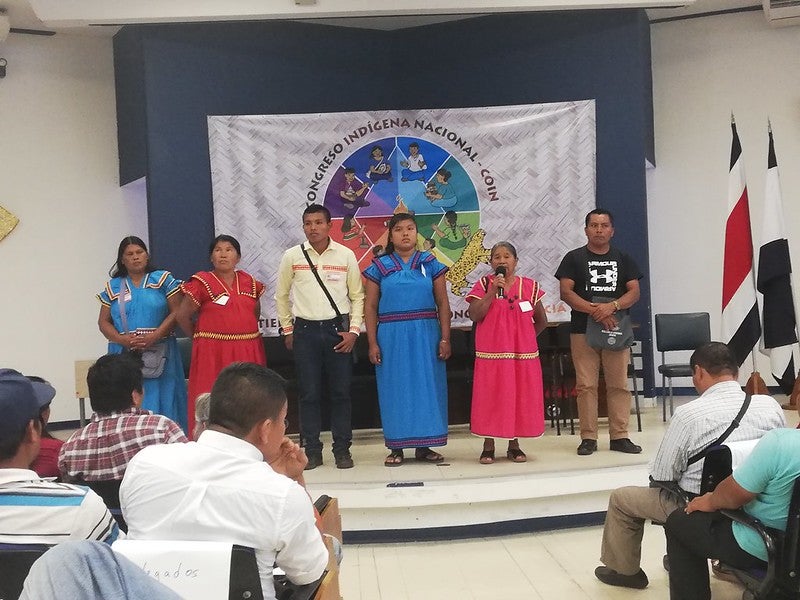
El Frente Nacional de Pueblos Indígenas (FRENAPI) - Huetar, Maleku, Bribri, Cabécar, Brunca, Ngöbe, Teribe, Chorotega - (Costa Rica)
Organizing the First National Indigenous Congress (Primer Congreso Nacional Indígena)
FRENAPI is a movement that fights for the rights of Indigenous Peoples in Costa Rica, particularly focusing on rights to land, culture and autonomy. FRENAPI brought together representatives from the eight Indigenous communities in Costa Rica to organize actions to strengthen Indigenous rights and autonomy at its First National Indigenous Congress.
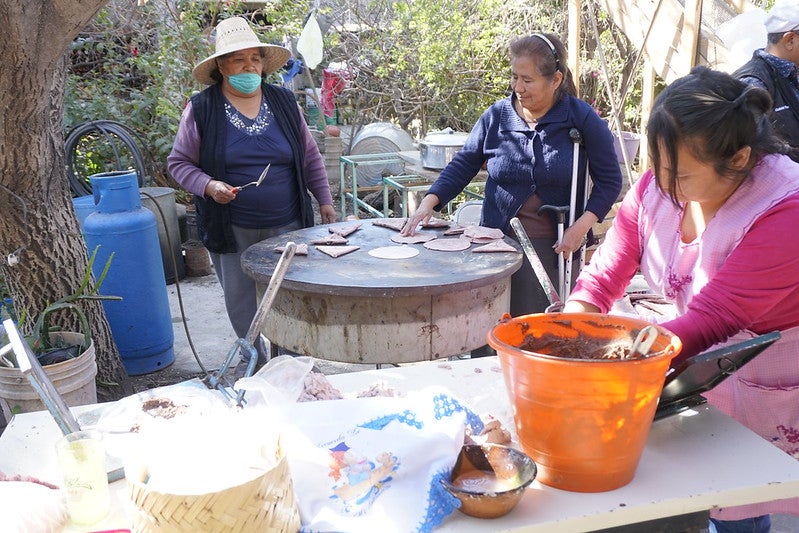
Asamblea de Pueblos Indígenas por la Soberanía Alimentaria en México (APISA) - (México)
4th International Indigenous Corn Conference and 22nd Corn and Native Seeds Fair
APISA is an alliance of Indigenous Peoples and organizations who aim to promote and protect the rights of Indigenous Peoples and strengthen their capacities to achieve food sovereignty through agroecology, self-determination, and development rooted in culture and identity. APISA used the KOEF funds to host the fourth International Indigenous Corn Conference in March 2019. The Conference brought together over 120 Indigenous farmers, knowledge holders, food sovereignty activists, tribal leaders, youth and older individuals together from Guatemala, Panama, Mexico, Peru, Ecuador, Bolivia, Chile, Puerto Rico, United States, and Canada. The participants shared information, seeds, traditional knowledge and strategies to protect corn and other traditional foods. The grant was also used to run the Corn and Native Seeds Fair which was attended by close to 2,500 Indigenous Peoples and rural communities.
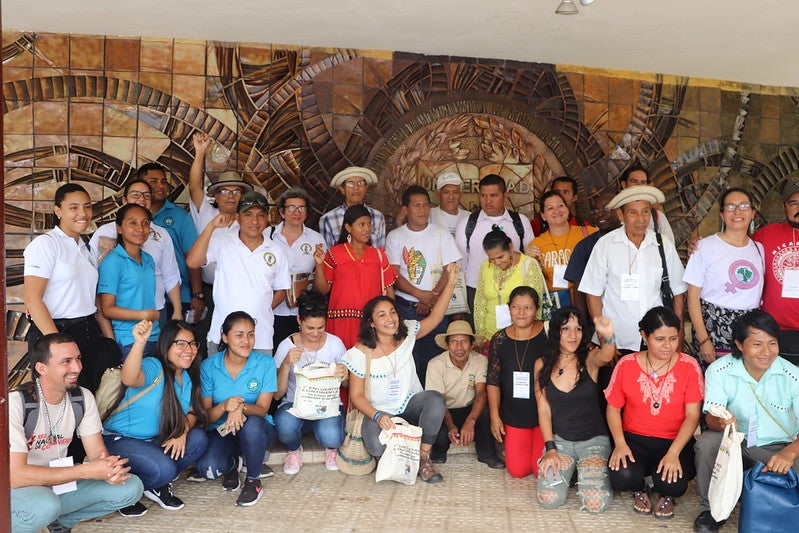
Red Nacional en Defensa del Agua - Ngäbe, Buglé, Naso, Teribe (Panamá)
Exchanging Experiences of Communities Affected by Dams
Red Nacional en Defensa de Agua brings together Indigenous, community, activist and other organizations to protect land, rivers and water sources from hydroelectric and other projects that threaten human rights and the environment. The KOEF funds were used to promote dialogue between communities affected by large-scale dam development in Panama and in the region and to strategize for action.
Mountain Indigenous Knowledge Center (MIKC) - Tangkhul Naga (India)
Transmitting Indigenous Knowledge Along the Indian-Burmese Border
MIKC aims to gather community action in order to revitalize and support Nasa knowledge and culture. This is more important than ever given the ongoing assimilation of Indigenous people into mainstream society. The grant will fund the Weaving Knowledge for Protecting Indigenous Way of Life project, allowing MIKC to organise events promoting Indigenous knowledge, including pottery making and weaving workshops.
Ki’kotemal TV - Maya Mam, K’iche (Guatemala)
Creating Videos to Promote K’iche’ Language Learning Online
Ki'kotemal TV has the mission of creating an audiovisual guide to revitalize Maya culture and Mam and K’iche languages within their community. Due to colonization and societal pressures, Maya languages have been threatened in Guatemala. Ki'kotemal TV is a platform through which Maya both within and outside of Guatemala can promote and revitalize their languages.
Yuku Savi - Mixteco (Mexico)
Strengthening Indigenous Culture and Capital Through Expo Fair
The Yuki Savi Collective project will strengthen Ñuu Savi traditional knowledge and culture. Formed in 2017 by four young men and women, Yuku Savi’s grant will create alternative work opportunities in the Santa María Cuquila community to encourage Indigenous youth to stay in the community and strengthen their economy and culture. One primary element of this project will be to gather plant species of cultural importance and then sell products made from them at an expo fair.
Asociación Jardín Botánico Las Delicias - Pueblo Misak (Colombia)
Rescuing Indigenous Heritage through Environmental Preservation
The Asociación Jardín Botánico Las Delicias works on conservation, education, and environmentalism, and hopes to enrich both cultural and natural resources within their community. With the KOEF grant, the Asociación will establish a seed bank for native plant species, traditional gardens for native Andean food, and a traditional building called Tamaramaiya for food preparation.
Asociación de Cabildos Indígenas Norte del Cauca (ACIN) - Nasa (Colombia)
Implementing a Local Economy System
The main tenets of the Asociación de Cabildos Indígenas Norte del Cauca are unity, culture, land, and autonomy. The KOEF grant will help ACIN to implement a local coin and economy system as an alternative to community sovereignty as a complement of their colidary economy project based on agricultural production. This project will be developed in the Resguardo Indígena Munchique los Tigres as a pilot project and model to be replicated in the other Indigenous reservations.
Nepal Tamang Women Ghedung - Tamang (Nepal)
Protecting Indigenous Women from Trafficking Through Educational Programs
The Nepal Tamang Women Ghedung’s mission is to empower Tamang women socially, economically, and politically. Founded in 1999, the organization is composed of Tamang women from each district chapter represented. Their project will organize programs between Tamang Indigenous women, government officials, and NGOs in order to raise awareness on the rights and issues related to human trafficking in various districts.
Munanai - Khoekhoe (South Africa)
Strengthening the Khoekhoe Language
Munanai, based in QuiQaip (Cape Town), is starting a project called Khomai, which means “read” in the Khoekhoe language. They aim to create a basic Khoekhoe language reader for members of the Khoe communities in South Africa, Namibia, and Botswana, helping to revitalize the ancestral Khoekhoe language. In addition to the reader, the grant will help fund a podcast that will provide an audio-educational experience for Khoe language learners.
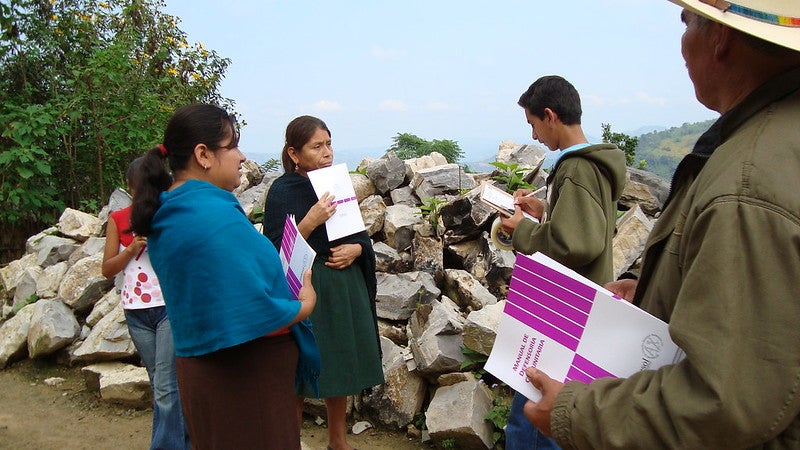
Agrupación de Derechos Humanos Xochitépetl - Nahua y Otomí (Mexico)
Empowering Women Politically Through Leadership Training
Founded in 1993, the Agrupación de Derechos Humanos Xochitépetl A.C. is an organization committed to promoting and defending the human rights of Inidgenous communities, and particularly those of Indigenous women. With the grant, the Agrupación will establish a training program in their mother tongue for Indigenous women to develop skills and leadership abilities. The goal is for Indigenous women to be able to participate more effectively in the municipal, state, and federal government, bringing their Indigenous knowledge and skills to Mexico’s political sphere.
El Centro Profesional Indígena de Asesoría, Defensa y Traducción (CEPIADET) - Mixteco (Mexico)
Creating Economic Solidarity in Oaxaca
CEPIADET is an organization created to support Indigenous language speakers in claiming their linguistic rights. Its three strategic aims are the protection of rights, public action and politics, and strengthening Indigenous communities. A KOEF grant will fund a project in Santiago Nuyó, Oaxaca, where the Tu’un Savi language is spoken. CEPIADET will promote economic solidarity within the community through a participatory community diagnostic, and trainings about economic solidarity to draft an economic plan in their Tu’un Savi language and in Spanish. The solidarity economy offers pathways toward transformation of economies into ones that serve the people and planet, not blind growth and private profits.
